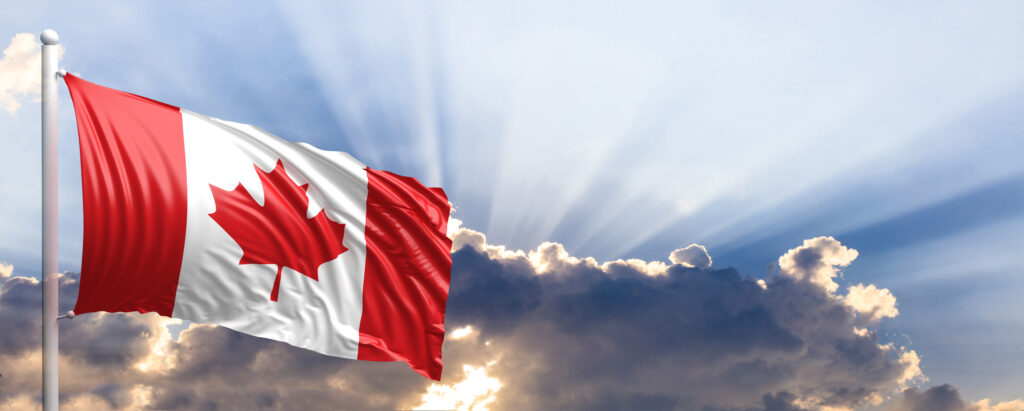
Immigration has become a major point of debate in Canadian federal politics.
Both the Liberal and Conservative parties have unveiled their 2025 election platforms, outlining their stances on various topics, including immigration.
Immigration Policy Spotlight: What the Liberals and Conservatives Are Proposing Ahead of the 2025 Election
Immigration continues to be a defining issue in Canadian federal politics. With the election just days away, both Mark Carney of the Liberal Party and Pierre Poilievre of the Conservative Party have outlined their visions for Canada’s immigration system if elected prime minister.
This article breaks down each party’s approach to key immigration topics—including permanent resident (PR) targets, temporary foreign workers, international students, and economic immigration.
Immigration Targets
Immigration targets reflect how many newcomers the federal government aims to welcome annually, typically outlined in the multi-year Immigration Levels Plan. Historically, these targets focused solely on permanent residents. However, the 2025–2027 plan, released in October 2024, also introduced targets for temporary residents, including international students and foreign workers.
Liberal Party
Mark Carney has criticized the current immigration system, calling it “broken.” He emphasized that immigration caps will remain in place “until we’ve expanded housing.” According to the Liberal platform, the party plans to keep annual PR admissions below 1% of Canada’s population after 2027.
This approach aligns with Canada’s existing immigration targets. The most recent Immigration Levels Plan sets the permanent resident (PR) admissions target at 395,000 for 2025. Given Canada’s projected population of 41.5 million that year, this figure represents less than 1%—indicating that the Liberal Party, under Mark Carney, intends to maintain the current cap.
Conservative Party
At a press conference in January 2024, Pierre Poilievre proposed linking immigration levels to the pace of homebuilding. Since then, he has repeatedly stated that immigration numbers would be lower under his leadership, though without offering specific figures.
According to the Conservative platform, the party plans to reduce permanent immigration to “a sustainable rate” similar to the levels seen under former Prime Minister Stephen Harper. During Harper’s tenure (2006–2015), Canada admitted between 247,000 and 281,000 permanent residents annually.
What remains unclear is whether the Conservatives intend to match the absolute number of immigrants admitted during the Harper years or adjust those figures proportionally to Canada’s current population size.
The party’s platform also emphasizes a broader principle: population growth should not outpace the country’s ability to expand housing, create jobs, and ensure access to health care.
Temporary Foreign Workers
Both party leaders have expressed concern over the sharp rise in temporary foreign worker numbers during the pandemic, calling the current levels unsustainable.
Liberal Party
In its 2025 platform, the Liberal Party proposes placing a cap on the combined number of temporary foreign workers and international students, limiting them to under 5% of Canada’s population by the end of 2027.
As of January 1, 2025, Canada’s temporary resident population stood at approximately 3.02 million—accounting for 7.27% of the total population—well above the proposed threshold.
Temporary Foreign Workers
Liberal Party
In 2024, under former Immigration Minister Marc Miller, the Liberal government began introducing measures to scale back Canada’s temporary resident population. These steps included setting specific targets for temporary residents in the Immigration Levels Plan, capping study permit applications, and tightening access to Post-Graduation Work Permits (PGWP) and spousal open work permits.
The latest plan calls for a reduction of 150,000 in net new temporary resident arrivals between 2025 and 2026.
Conservative Party
Pierre Poilievre has consistently criticized the Temporary Foreign Worker Program (TFWP). The Conservatives’ 2025 platform pledges to restore credibility to the system by significantly lowering the number of temporary foreign workers and international students and cracking down on abuse and fraud—although it doesn’t offer specific numbers.
The platform also proposes requiring “union LMIA pre-checks,” which would likely mandate employer consultation with unions before hiring through the TFWP. Poilievre has previously stated that foreign workers should only be admitted in rare cases—such as in agriculture or remote small businesses facing acute labour shortages.
International Students
The Conservative platform also includes a new requirement for police background checks for student permit applicants.
Currently, study permit applicants are not automatically required to provide police certificates, although officers can request them if concerns arise. The proposed change would make police checks mandatory for all.
Under existing immigration law, any applicant with a serious criminal record is already inadmissible to Canada—but this proposal would shift the burden of proof earlier in the process. For comparison, permanent residence applications typically require police certificates from any country where the applicant has lived for six months or more as an adult.
Economic Immigration
Liberal Party
The Liberals remain committed to economic immigration. Their platform promises to revamp the Global Skills Strategy to attract highly skilled talent—particularly from the U.S.—and to help fast-growing Canadian companies and entrepreneurs bring in key workers.
They also plan to collaborate with provinces and territories to simplify the recognition of foreign credentials, particularly in regulated fields like healthcare, skilled trades, and education.
Conservative Party
While the 2025 Conservative platform doesn’t detail economic immigration policies, Poilievre has publicly supported the idea of streamlining foreign credential recognition. In an October 2024 speech, he proposed a national “blue seal” certification for healthcare professionals, allowing internationally trained doctors and nurses to qualify through a standardized test recognized across provinces.
Refugees and Asylum Seekers
Liberal Party
Mark Carney recently addressed the rising number of asylum seekers entering from the U.S., attributing the spike to stricter immigration policies under President Donald Trump. He called the situation “unacceptable” and emphasized the need for stronger bilateral coordination between Canada and the U.S.
The Liberal platform commits to expanding legal aid for asylum seekers, aiming to ensure fair representation and faster case resolution.
Conservative Party
Pierre Poilievre has voiced doubt over the legitimacy of many recent refugee and asylum claims, suggesting a large portion may be fraudulent.
Refugees and Asylum Seekers
Conservative Party
At a recent campaign event, Pierre Poilievre stated his support for legal immigration but emphasized that “fraudsters will have to go.” He has previously proposed placing a cap on asylum seekers, distinguishing between genuine refugees and those he believes are abusing the system.
The Conservative platform calls for refugee claims to be processed using a “last-in, first-out” model, meaning newer claims would be prioritized over older ones. This approach aims to streamline decisions and avoid future backlogs.
Additionally, the party proposes implementing a system to track the departures of foreign nationals, helping authorities monitor and act on overstays.
Border Security and General Safety
Liberal Party
The Liberals promise to maintain a fair immigration system while ensuring the swift removal of individuals whose claims are denied, after due process. Their platform includes enhanced security screenings, faster identification and removal of inadmissible individuals, stricter visa controls, and tougher enforcement against immigration fraud—building on measures announced earlier in 2025 under Marc Miller.
Conservative Party
Poilievre has long advocated for stronger border security. His past proposals include deploying Canadian forces and helicopters to the border, expanding the role of the Canada Border Services Agency (CBSA), and increasing the number of border agents.
The Conservatives also pledge to take swift action against visiting foreign nationals who commit crimes, promising expedited removals.
Francophone Immigration
Liberal Party
Mark Carney has made francophone immigration outside of Quebec a key focus. The Liberal platform sets a target of 12% francophone immigration outside Quebec by 2029. This is a gradual increase from the current targets: 8.5% in 2025, 9.5% in 2026, and 10% in 2027.
Conservative Party
While Poilievre has voiced support for strengthening French language and culture, the Conservative platform does not outline specific targets for francophone immigration.
Other Key Commitments
Liberal Party
The Liberal platform also includes plans to:
- Use digital tools to speed up application processing and reduce backlogs;
- Strengthen coordination among federal, provincial, and territorial governments on issues like status, removals, and settlement;
- Respect Quebec’s unique role in managing immigration and protecting French language and culture.
Conservative Party
The Conservatives explicitly reject the Century Initiative, a proposal to significantly expand the populations of Canada’s largest cities. The initiative envisions future populations such as 33.5 million in Toronto and over 11 million in Vancouver—projections the party deems unrealistic and unsustainable.
Instead, the Conservatives seem to favour more balanced growth, while the federal government (under past administrations) has supported regional immigration programs like the Atlantic Immigration Program and Rural and Northern Immigration Pilot to encourage settlement across the country.
